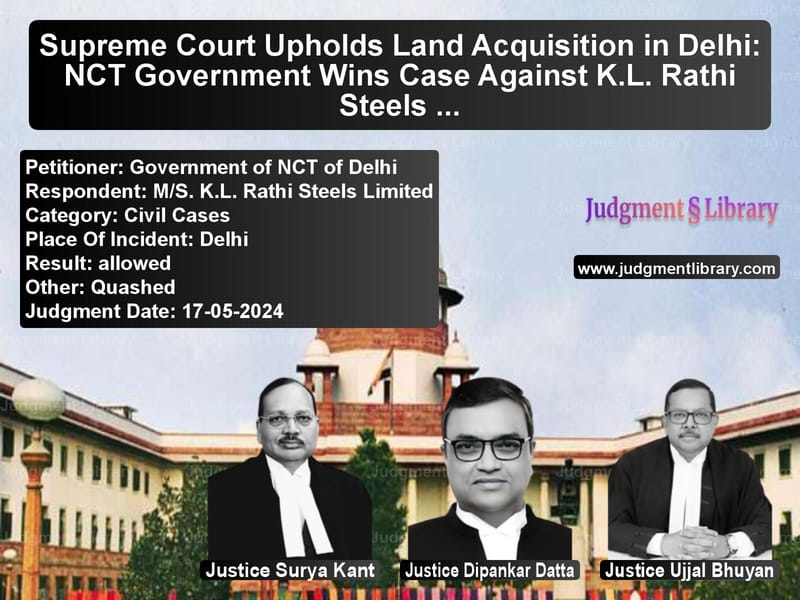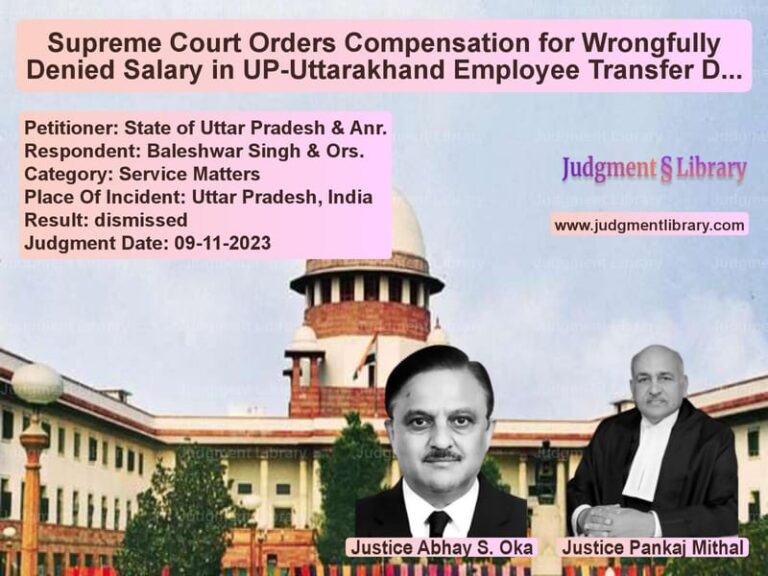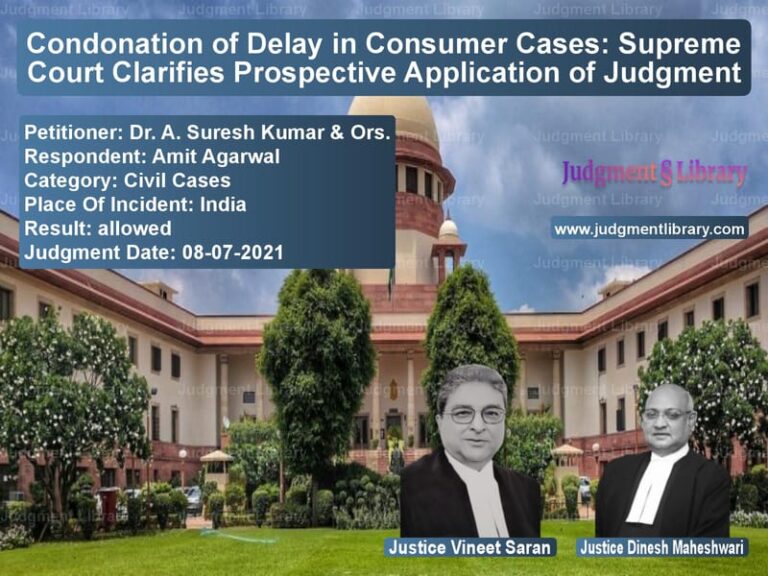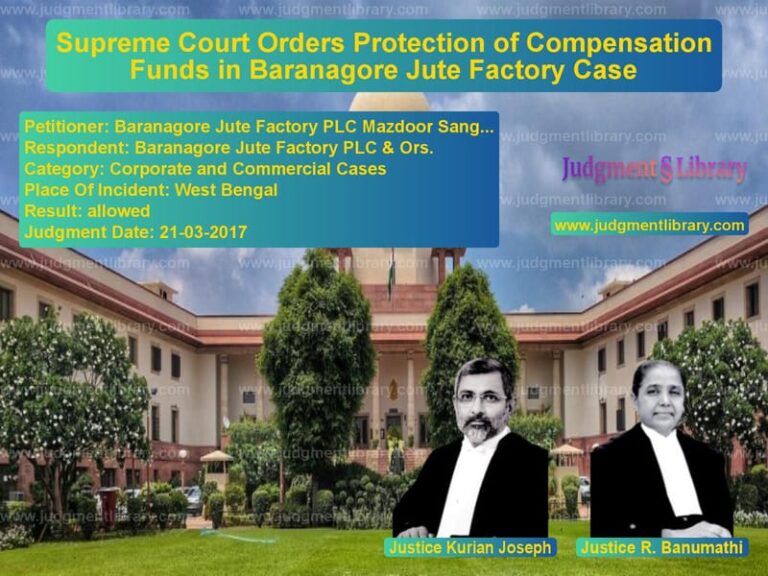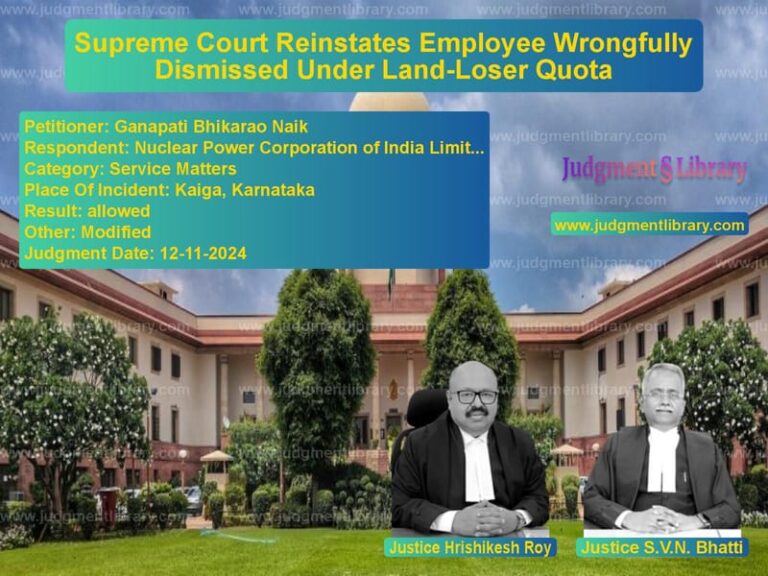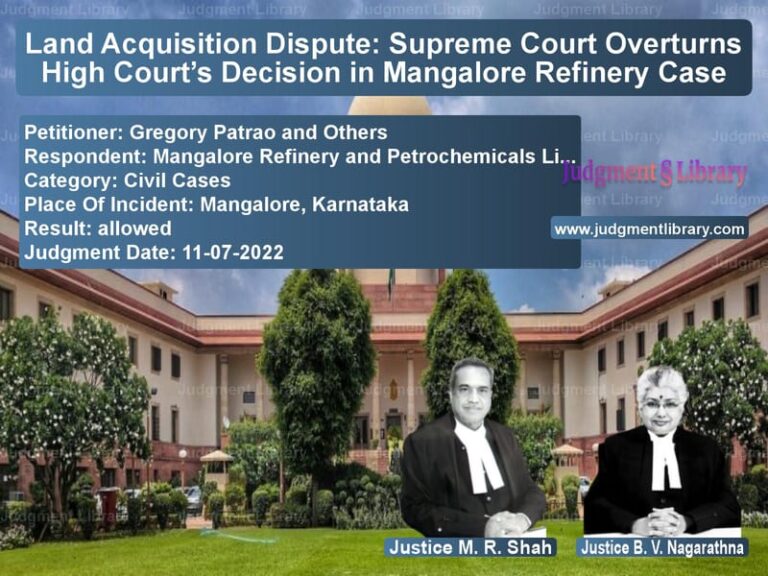Supreme Court Upholds Land Acquisition in Delhi: NCT Government Wins Case Against K.L. Rathi Steels Ltd.
The Supreme Court of India has delivered a crucial judgment in the case of Government of NCT of Delhi v. K.L. Rathi Steels Limited, clarifying the interpretation of the Land Acquisition Act, 1894, and the Right to Fair Compensation and Transparency in Land Acquisition, Rehabilitation, and Resettlement Act, 2013. The ruling settled a long-standing dispute regarding whether land acquisition proceedings initiated under the 1894 Act had lapsed due to the failure to complete possession and compensation procedures.
Background of the Case
The dispute arose when the Delhi government initiated land acquisition proceedings under the 1894 Act. M/s K.L. Rathi Steels Limited challenged these acquisitions in the Delhi High Court, arguing that the process was incomplete under Section 24(2) of the 2013 Act and should be deemed as lapsed. The High Court, relying on past Supreme Court rulings, declared the land acquisition proceedings as having lapsed. Aggrieved, the NCT government and the Delhi Development Authority (DDA) appealed to the Supreme Court.
Key Legal Issues
- Did the land acquisition proceedings lapse due to non-compliance with Section 24(2) of the 2013 Act?
- Did past judgments like Pune Municipal Corporation v. Harakchand Misirimal Solanki create binding precedents that mandated such a lapse?
- Was the review petition maintainable in light of later Supreme Court rulings on land acquisition law?
Arguments by the Government of NCT of Delhi
- The government argued that land acquisition proceedings could not lapse merely due to the failure to pay compensation or take possession, especially when land had already been earmarked for public projects.
- The 2013 judgment in Pune Municipal Corporation was later overruled by a Constitution Bench in Indore Development Authority v. Manoharlal, which held that land acquisition does not lapse if compensation has been deposited in a government account.
- The government contended that dismissing the acquisition proceedings would cause immense harm to public infrastructure projects.
Arguments by K.L. Rathi Steels Limited
- The company argued that the acquisition process was incomplete since possession had not been taken, and compensation was not directly paid to the landowners.
- It relied on past judgments where the Supreme Court ruled that failure to comply with these requirements led to automatic lapsing of acquisition.
- The company opposed the review petition, arguing that the principle of finality in judicial decisions should apply.
Supreme Court’s Observations
The Supreme Court, led by a bench comprising Justices Surya Kant, Dipankar Datta, and Ujjal Bhuyan, analyzed the arguments and noted:
- The Pune Municipal Corporation ruling, which had favored landowners in such cases, was explicitly overruled by a larger bench in Indore Development Authority.
- “The 2013 Act does not automatically nullify all pending acquisitions under the 1894 Act unless specific conditions are met,” the bench observed.
- The Court clarified that government authorities could complete pending acquisitions as long as compensation had been deposited in the government treasury.
- The review petition was deemed maintainable since it sought to correct a legal position that had changed due to a subsequent larger bench ruling.
Final Judgment
- The Supreme Court allowed the review petition and upheld the Delhi government’s acquisition of the disputed land.
- The Court quashed the Delhi High Court’s ruling that had declared the acquisition proceedings as lapsed.
- It provided a one-year period for the government to complete any remaining acquisition formalities, ensuring compensation was finalized.
- Public infrastructure projects involving the acquired land were permitted to proceed.
Implications of the Judgment
- The ruling provides clarity on Section 24(2) of the 2013 Act, confirming that land acquisition does not automatically lapse due to compensation delays.
- It reaffirms that review petitions can be entertained when a legal precedent has been overturned by a subsequent larger bench decision.
- The judgment protects government infrastructure projects from unnecessary legal hurdles arising due to past interpretations of land acquisition laws.
- It reinforces that compensation deposited in a government account is sufficient compliance with legal requirements.
Conclusion
The Supreme Court’s ruling in Government of NCT of Delhi v. K.L. Rathi Steels Limited is a landmark judgment in land acquisition law. By upholding the government’s acquisition and overruling the lapse doctrine applied by lower courts, the decision strengthens the framework for fair and transparent land acquisition while ensuring public infrastructure development remains uninterrupted.
Petitioner Name: Government of NCT of Delhi.Respondent Name: M/S. K.L. Rathi Steels Limited.Judgment By: Justice Surya Kant, Justice Dipankar Datta, Justice Ujjal Bhuyan.Place Of Incident: Delhi.Judgment Date: 17-05-2024.
Don’t miss out on the full details! Download the complete judgment in PDF format below and gain valuable insights instantly!
Download Judgment: government-of-nct-of-vs-ms.-k.l.-rathi-stee-supreme-court-of-india-judgment-dated-17-05-2024.pdf
Directly Download Judgment: Directly download this Judgment
See all petitions in Landlord-Tenant Disputes
See all petitions in Property Disputes
See all petitions in Damages and Compensation
See all petitions in Contract Disputes
See all petitions in Other Cases
See all petitions in Judgment by Surya Kant
See all petitions in Judgment by Dipankar Datta
See all petitions in Judgment by Ujjal Bhuyan
See all petitions in allowed
See all petitions in Quashed
See all petitions in supreme court of India judgments May 2024
See all petitions in 2024 judgments
See all posts in Civil Cases Category
See all allowed petitions in Civil Cases Category
See all Dismissed petitions in Civil Cases Category
See all partially allowed petitions in Civil Cases Category

